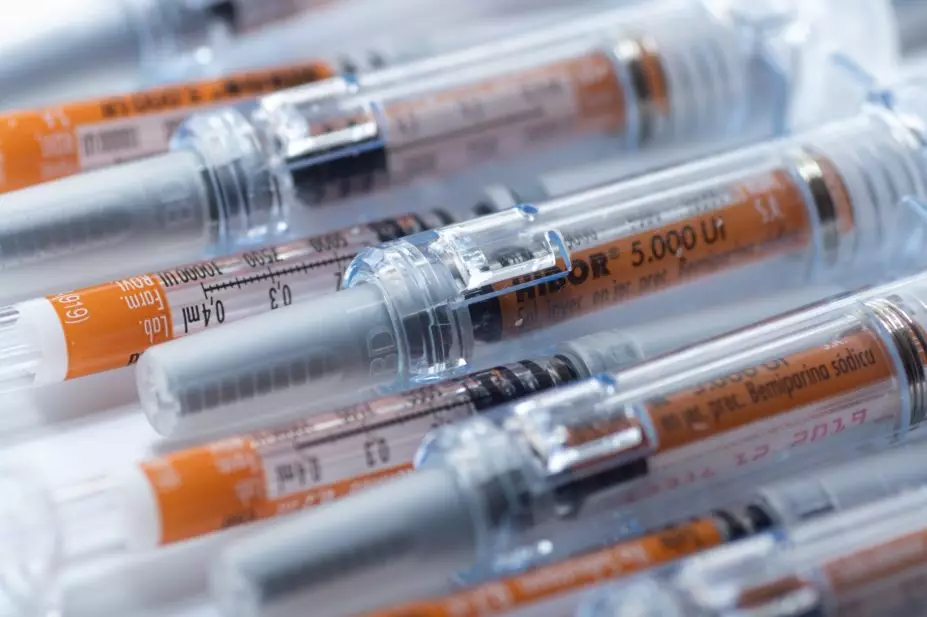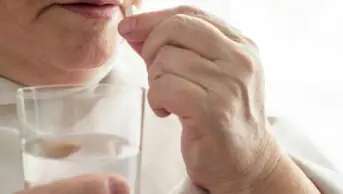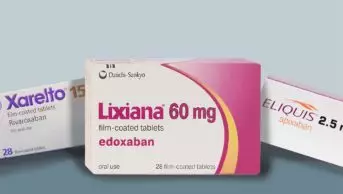
Shutterstock.com
Open access article
The Royal Pharmaceutical Society has made this article free to access in order to help healthcare professionals stay informed about an issue of national importance.
To learn more about coronavirus, please visit: https://www.rpharms.com/resources/pharmacy-guides/wuhan-novel-coronavirus
Starting COVID-19 patients on prophylactic anticoagulation within 24 hours of being admitted to hospital is linked to a reduced risk of mortality, a study in the BMJ has found.
The observational cohort study included 4,297 patients admitted to hospital in the United States from 1 March 2020 to 31 July 2020 with COVID-19 and no history of anticoagulation.
Overall, 84.4% of patients received prophylactic anticoagulation within 24 hours of admission to hospital and, of these, more than 99% were given either subcutaneous heparin or enoxaparin.
Compared with patients who did not receive prophylactic anticoagulation within 24 hours, those who did had a 27% decreased risk for 30-day mortality (hazard ratio [HR] 0.73, 95% confidence interval [CI] 0.66 to 0.81).
The cumulative incidence of mortality at 30 days was 14.3% (95% CI 13.1% to 15.5%) among those who received prophylactic anticoagulation, and 18.7% (95% CI 15.1% to 22.9%) among those who did not; this equated to an absolute risk reduction of 4.4% among patients admitted to hospital with COVID-19.
Those who received prophylactic anticoagulation also did not appear to have an increased risk of bleeding that required transfusion (HR 0.87, 95% CI 0.71 to 1.05).
The authors said that the results provided “real world evidence” to support guidelines recommending the use of prophylactic anticoagulation as initial treatment for patients with COVID-19 on admission to hospital.
Katherine Stirling, consultant pharmacist in anticoagulation and thrombosis at Leeds Teaching Hospitals NHS Trust, said that the UK was quick to pick up that COVID-19 increased the risk of thrombosis and to recommend venous thromboembolism (VTE) prophylaxis for all patients admitted to hospital with COVID-19 related disease, unless the bleeding risk was too great.
“The NICE [National Institute for Health and Care Excellence] rapid COVID-19 guideline NG186 supports this for patients admitted, and also recommends those being cared for at home under a virtual ward or hospital at home are assessed and considered for prophylaxis if appropriate,” she explained.
“I think this study gives even more weight to what is currently recommended in the UK: that unless there is a contraindication to VTE thromboprophylaxis for patients with COVID-19 related disease, all patients should receive it as soon as possible after admission.
“[The researchers] did exclude anyone with a contraindication to anticoagulation, so this really showed the benefit of early VTE thromboprophylaxis for patients admitted.”
Paul Wright, lead cardiac pharmacist at Barts Health NHS Trust, said that there was “lots of controversy” and a lack of large randomised controlled trials in finding the optimum dosage and timing of heparin to use in COVID-19.
“This study would suggest that when using prophylactic doses, first doses given within 24 hours would translate to better outcomes for patients. There are further trials ongoing looking at the optimum dose that patients with COVID-19 should be prescribed, with trials varying between prophylactic, intermediate or full-dose heparin,” he said.
“If patients are eligible for VTE prophylaxis — and most patients with COVID-19 who are admitted to hospital would fulfil criteria — administration of the first dose should be aimed within 24 hours.”


